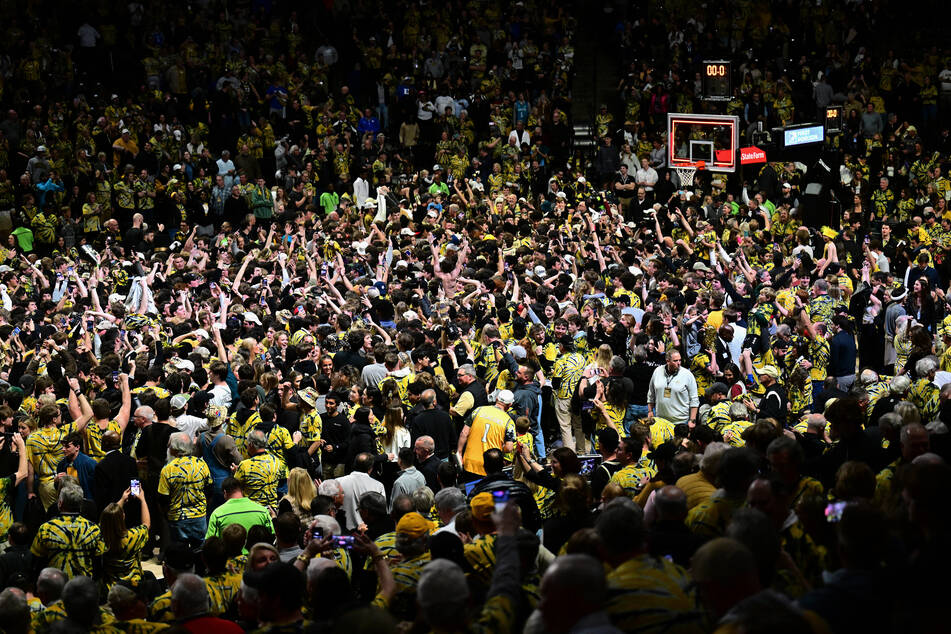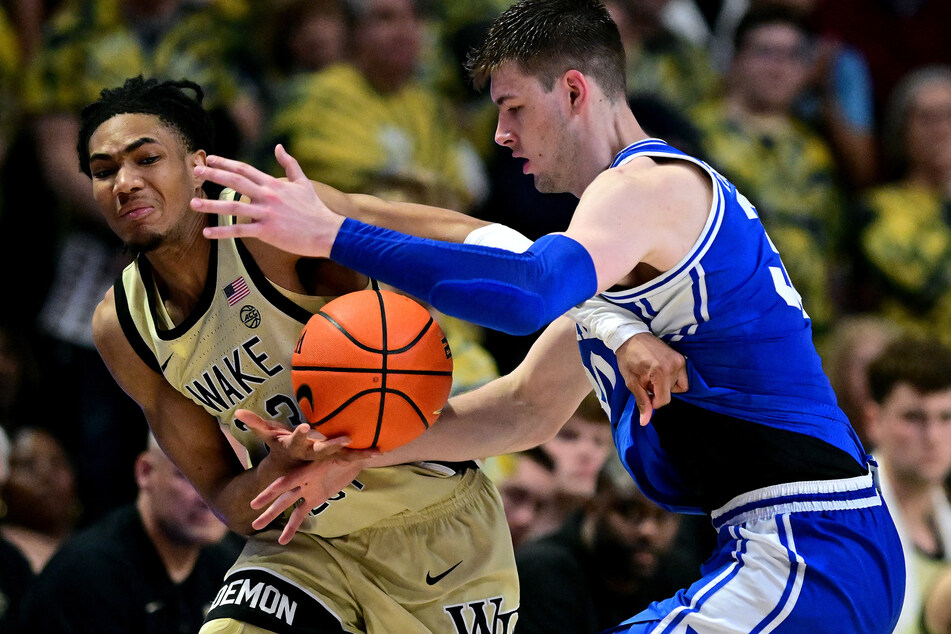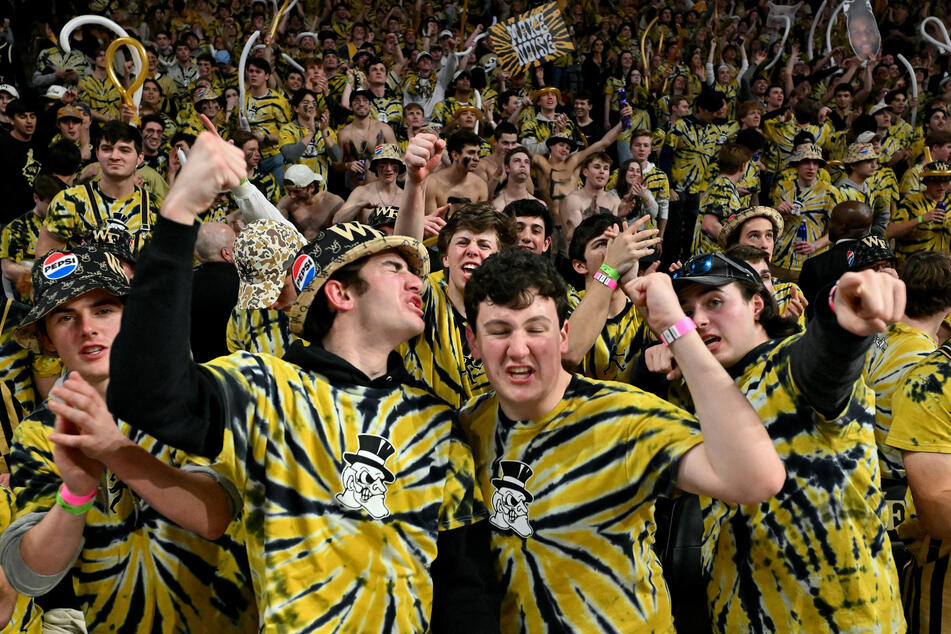Duke coach demands NCAA crackdown on court-storming after Kyle Filipowski incident
Winston-Salem, North Carolina - The NCAA faced fresh calls to ban rowdy postgame court invasions Monday after a second player was hurt as spectators rushed from their seats.

Duke University center Kyle Filipowski – one of the top-rated prospects in college basketball – suffered a knee injury on Saturday after Wake Forest University fans in North Carolina stormed the home court following their team's 83-79 victory.
The incident came just over a month after University of Iowa star Caitlin Clark had a run-in with an Ohio State fan during another post-game invasion on January 21.
The latest incidents have brought calls for an outright ban on spectators storming the court, and tougher sanctions for those involved.
Duke coach Jon Scheyer said Monday that the Atlantic Coast Conference needed to take firm action to stop court-storming.
"The ACC needs to do something," Scheyer said in a video press conference. "There has to be something done to protect our guys, and not just our guys, but any team that's in that situation."
"We shouldn't wait until next year. So that should be done right now."
Duke's Jon Scheyer responds furiously

After Filipowski's injury, an incensed Scheyer had called for an end to wild post-game celebrations.
"When are we going to ban court-storming?" Scheyer said. "How many times does a player have to get into something where they get punched or they get pushed or they get taunted right in their face? It's a dangerous thing."
Filipowski meanwhile said he believes he was targeted by opposition fans.
"Intentional for sure," he said after Saturday's loss. "There's no reason where they see a big guy like me trying to work my way off the court and they can't just work around me. There's no excuse for that."
ACC officials said player safety was under constant review, but acknowledged recent incidents were unacceptable.
"Across college athletics, we have seen far too many of these incidents that put individuals at serious risk, and it will require the cooperation of all – including spectators – to ensure everyone's well-being," ACC commissioner Jim Phillips said in a statement.
"As a conference, we will continually assess with our schools the best way to protect our student-athletes, coaches, and fans."
NCAA prioritize "visuals"

ESPN basketball analyst Jay Bilas was skeptical of any impending crackdown.
"It's really pointless (to talk about) because it is not going to stop," Bilas said Monday. The NCAA membership "doesn't want it to stop."
"They like the visual, they take pictures of it and put it all up throughout their institutions and locker rooms and use it in recruiting."
Media must take some "accountability" too, he said, given how broadcasters show court celebrations in their highlight segments.
ESPN pundit Stephen A. Smith said colleges would balk at the cost of providing extra courtside security.
"They're not going to do it because they don't want to spend the money," Smith said Monday on ESPN. "That's what this really comes down to."
The ACC, which Duke and Wake Forest belong to, and the Big Ten Conference, which Iowa plays in, are the only two of the five major college sports conferences that don't impose automatic fines on schools whose fans storm the field or court.
Bilas however believes even fines, which can rise to $100,000 for repeat offenses, are ineffective, arguing colleges are often happy to take the financial hit.
"When a school gets fined by the conference for a court storming after a big win that they enjoy, they round up the money from their boosters to pay and they basically say, 'We'll be glad to pay it,'" he said.
Cover photo: GRANT HALVERSON / GETTY IMAGES NORTH AMERICA / GETTY IMAGES VIA AFP

